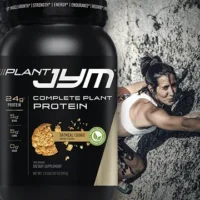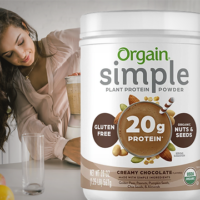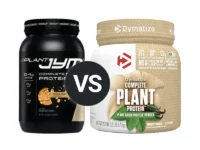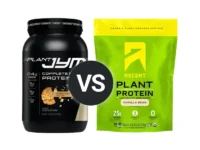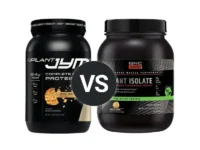Knowledge BaseYou're Questions Answered
Can plant protein powder cause diarrhea?
Plant protein powders are popular dietary supplements derived from various plant sources, such as peas, rice, soy, hemp, and others. While generally considered safe and beneficial for most people, some individuals may experience digestive issues, including diarrhea, when consuming plant protein powders. Below, we explore the potential causes and considerations related to plant protein powders and their association with diarrhea.
Potential Causes of Diarrhea from Plant Protein Powder
-
Sensitivities and Allergies
Some individuals may have sensitivities or allergies to specific plant-based proteins, such as soy or pea protein. These sensitivities can lead to gastrointestinal discomfort, including diarrhea. It is important for individuals to be aware of any known allergies or intolerances and to choose protein powders that do not contain those specific ingredients1.
-
High Fiber Content
Many plant protein powders contain varying levels of dietary fiber, which can be beneficial for digestion and overall health. However, a sudden increase in fiber intake, especially for individuals not accustomed to high-fiber diets, can lead to gastrointestinal upset, including diarrhea. This is because fiber can speed up the passage of food through the digestive tract, leading to looser stools2.
-
Additives and Sweeteners
Some plant protein powders contain artificial sweeteners, sugar alcohols, or other additives that can cause digestive issues in some people. Ingredients like sorbitol, erythritol, and sucralose are common culprits that may lead to diarrhea, particularly when consumed in large amounts. It is advisable to check the ingredient list for such additives and choose products with minimal or natural ingredients3.
-
Incomplete Protein Digestion
Some individuals may experience difficulty digesting certain plant proteins due to the presence of anti-nutrients, such as phytic acid or lectins, which can inhibit protein absorption. This incomplete digestion can lead to gastrointestinal discomfort, including gas, bloating, and diarrhea. However, many plant protein powders are processed to reduce these anti-nutrients, making them more digestible4.
-
Overconsumption
Consuming large quantities of plant protein powder in a short period can overwhelm the digestive system, leading to diarrhea and other gastrointestinal symptoms. It is important to follow recommended serving sizes and gradually introduce new supplements into the diet to allow the digestive system to adjust5.
Recommendations to Prevent Diarrhea
-
Start Slowly
If new to plant protein powders, start with a smaller serving size and gradually increase to the recommended amount. This allows the digestive system to adapt and can help prevent digestive issues.
-
Check Ingredient Labels
Opt for plant protein powders with simple, natural ingredient lists. Avoid products with artificial sweeteners, sugar alcohols, or other additives that may cause gastrointestinal distress.
-
Balance Fiber Intake
If the protein powder has a high fiber content, ensure that the rest of your diet balances fiber intake to avoid sudden increases that could cause diarrhea. Gradually increasing fiber intake can help the digestive system adjust.
-
Hydration
Ensure adequate hydration, especially when increasing fiber intake, as water helps the body process fiber more effectively and can prevent constipation and diarrhea.
- Messina, M., & Messina, V. (2010). The role of soy in vegetarian diets. Nutrients, 2(8), 855-888.
- Slavin, J. L. (2013). Fiber and prebiotics: mechanisms and health benefits. Nutrients, 5(4), 1417-1435.
- Magnuson, B. A., Burdock, G. A., Doull, J., Kroes, R. M., Marsh, G. M., Pariza, M. W., ... & Williams, G. M. (2007). Aspartame: a safety evaluation based on current use levels, regulations, and toxicological and epidemiological studies. Critical Reviews in Toxicology, 37(8), 629-727.
- Gibson, R. S., Perlas, L., & Hotz, C. (2006). Improving the bioavailability of nutrients in plant foods at the household level. Proceedings of the Nutrition Society, 65(2), 160-168.
- Mortensen, L. S., Hartvigsen, M. L., Brader, L. J., Astrup, A., & Raben, A. (2012). Differential effects of protein quality on postprandial lipemia and incretin responses in adults with type 2 diabetes: a randomized controlled trial. American Journal of Clinical Nutrition, 95(4), 662-671.
Related Questions

Your Answer
We are a participant in the Amazon Services LLC Associates Program, an affiliate advertising program designed to provide a means for us to earn fees by linking to Amazon.com and affiliated sites.


